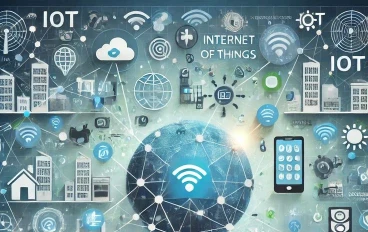
Climate Change: The Urgent Global Challenge We Must Confront Now
Climate Change: A Global Challenge That Demands Action
Climate change is one of the most pressing issues of our time, posing significant threats to ecosystems, economies, and societies worldwide. Driven primarily by human activities, such as burning fossil fuels, deforestation, and industrial processes, the consequences of a warming planet are already visible. From rising sea levels to extreme weather events, the evidence is undeniable. This article examines the causes, impacts, and potential solutions to climate change, emphasizing the urgent need for collective action.
Causes of Climate Change
At its core, climate change results from an increase in greenhouse gases (GHGs) in the Earth's atmosphere. These gases, including carbon dioxide (CO₂), methane (CH₄), and nitrous oxide (N₂O), trap heat from the sun, creating a "greenhouse effect." While this effect is essential for maintaining a habitable climate, excessive concentrations of GHGs have led to global warming.
Human activities are the primary contributors to this phenomenon. The burning of fossil fuels for energy production, transportation, and industry accounts for the majority of CO₂ emissions. Deforestation further exacerbates the problem by reducing the planet's capacity to absorb carbon dioxide. Agricultural practices, such as livestock farming and the use of synthetic fertilizers, release significant amounts of methane and nitrous oxide, respectively.
Impacts of Climate Change
The impacts of climate change are far-reaching and multifaceted, affecting natural systems and human livelihoods alike:
Rising Temperatures
Global temperatures have risen significantly over the past century, leading to heatwaves, droughts, and other extreme weather conditions. This affects agriculture, water supply, and public health, particularly in vulnerable regions.
Melting Ice and Rising Sea Levels
The polar ice caps and glaciers are melting at unprecedented rates, contributing to rising sea levels. Coastal communities face increased risks of flooding, erosion, and displacement. Low-lying nations, such as the Maldives, are particularly at risk of losing significant portions of their landmass.
Loss of Biodiversity
Climate change disrupts ecosystems, leading to habitat loss and threatening countless plant and animal species with extinction. Coral reefs, for instance, are highly sensitive to rising ocean temperatures, resulting in widespread coral bleaching.
Increased Frequency of Natural Disasters
Hurricanes, typhoons, and wildfires are becoming more frequent and intense due to changing weather patterns. These disasters not only cause immense human suffering but also result in billions of dollars in economic losses.
Economic and Social Disruptions
The economic consequences of climate change include damage to infrastructure, reduced agricultural yields, and increased healthcare costs. Socially, it can exacerbate inequalities, force migration, and fuel conflicts over scarce resources.
Solutions to Climate Change
While the challenges are daunting, solutions to mitigate and adapt to climate change exist. Success will require global cooperation and a commitment to sustainable practices:
Transition to Renewable Energy
Replacing fossil fuels with renewable energy sources, such as solar, wind, and hydropower, is critical to reducing carbon emissions. Investment in energy-efficient technologies and infrastructure can further accelerate this transition.
Afforestation and Reforestation
Protecting existing forests and planting new trees can help absorb carbon dioxide from the atmosphere. These efforts must be combined with policies to prevent deforestation and promote sustainable land use.
Promoting Sustainable Agriculture
Adopting practices such as organic farming, crop rotation, and efficient water management can reduce GHG emissions in the agricultural sector. Innovations like lab-grown meat and plant-based diets also hold promise for reducing methane emissions from livestock.
Improving Public Transportation
Encouraging the use of public transportation, cycling, and walking can significantly cut emissions from the transportation sector. Electrification of vehicles and the development of clean energy infrastructure are also vital.
International Cooperation
Climate change is a global issue that requires collective action. Agreements like the Paris Accord aim to unite nations in their efforts to limit global warming to well below 2°C above pre-industrial levels. However, stronger commitments and accountability measures are needed to achieve these goals.
Raising Awareness
Educating the public about the causes and consequences of climate change can inspire individual and community-level action. Simple lifestyle changes, such as reducing waste, conserving energy, and supporting sustainable products, can collectively make a significant difference.
Conclusion
Climate change is not a distant threat—it is a reality that demands immediate and sustained action. The choices we make today will determine the future of our planet and the generations that inherit it. While the challenges are immense, humanity has the knowledge, tools, and capacity to address this crisis.
By embracing renewable energy, protecting natural ecosystems, and fostering international collaboration, we can mitigate the impacts of climate change and create a more sustainable and resilient world. The time to act is now—our planet cannot afford to wait.

































